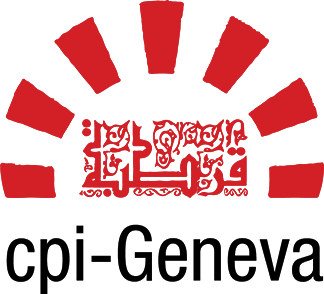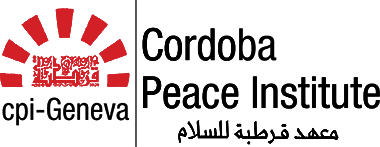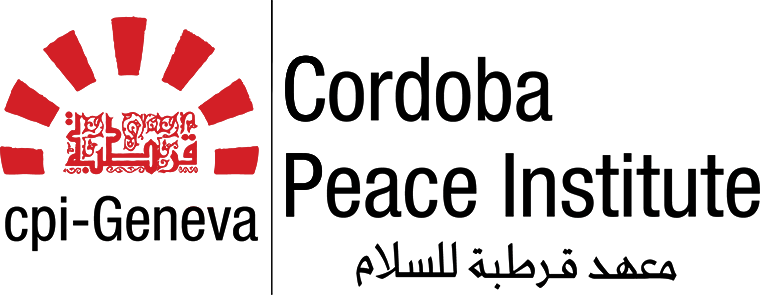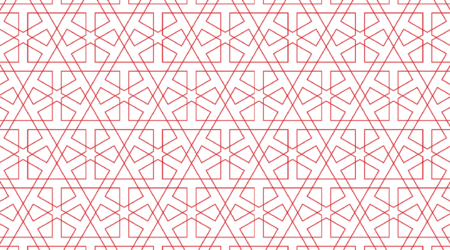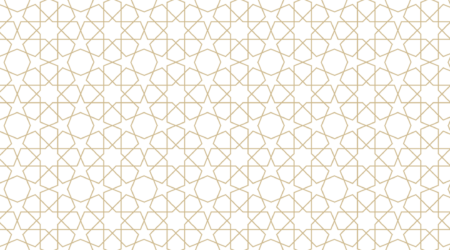The Cordoba Update 17/2016
|
The bi-weekly CORDOBA UPDATE is the product of continuous monitoring work, carried out by the Cordoba Foundation of Geneva team. By analysing and reporting on key events and trends in the Foundation’s areas of interest, we aim to draw readers’ attention to pertinent developments in North Africa, the Sahel, West Asia and Europe, which are not always covered in ‘mainstream’ media. In addition to sharing news from these four regions, the Cordoba Update is an opportunity for the Foundation to provide regular updates on its publications, events and other developments. In line with the programmes and projects funded by partners of the Cordoba Foundation of Geneva, updates and information are included under the following themes:
For questions and/or feedback regarding the content and form of the Cordoba Update, please contact Sarah Franck: sarah.franck@cordoue.ch Le CORDOBA UPDATE est un bimensuel qui présente le travail continu de suivi réalisé par l’équipe de la Fondation Cordoue de Genève. Par l’analyse des événements et tendances qui concernent les domaines d’intérêt de la Fondation, nous visons à attirer l’attention de nos lecteurs sur les développements pertinents en Afrique du Nord, dans le Sahel, en Asie de l’Ouest et en Europe, une actualité qui n’est pas toujours couverte dans les médias dits ‘traditionnels’. Outre le partage de l’actualité de ces quatre régions, le « Cordoba Update » est un moyen pour la Fondation de fournir des mises à jour régulières sur ses publications, événements et autres développements. En accord avec les programmes et projets financés par les partenaires de la Fondation Cordoue de Genève, les mises à jour et informations concernent les thèmes suivants :
Pour des questions et / ou des commentaires concernant le contenu et la forme du Cordoba Update, veuillez contacter Sarah Franck : sarah.franck@cordoue.ch |
ISLAMIST-SECULAR RELATIONS / RELATIONS ENTRE SÉCULIERS ET ISLAMISTES
Tunisia, 10.10.16: The Republic’s Mufti and Politics
Tunisia’s Grand Mufti Othmane Battikh, appointed by President Beji Caid Essebsi last summer, caused a political row, in late September, when he considered some labour sit-ins and protests as haram or religiously illicit because they harm the country’s fragile economy. Battikh was quick to clarify that his statement was an opinion and not a religious verdict or fatwa, but that did little to calm the controversy and debate his statement unleashed regarding the role of religion in a civil state, as Tunisia’s constitution upholds. Battikh, who was formerly minister of foreign affairs in Habib Sid’s government; and was appointed Grand Mufti from 2008-2013 by Zin el Abidin Ben Ali, put the PM Youssef Chad in an awkward position as to the nature of the relationship between the two institutions. Besides, apart from the reaction of the UGTT labour union that expressed its astonishment at the Mufti’s statement, secularist political parties and figures observed deafening silence and did not express any clear position in favour or against Battikh’s fatwa. Thus, it was social media activists who forced the issue onto the national political agenda, despite its careful avoidance by political parties and figures. Under the Ennahda-led Troika government Ennahda criticised the leftist Popular Front for triggering chaotic strikes and sit-ins which harmed the economy. It was therefore understandable for Ennahda not to oppose Battikh’s statement this time despite their strong differences. Besides, the Islamist party is in the coalition government and had to stand in solidarity by it. Likewise, Battikh’s entry in politics has, according to some observers, disarmed the Popular Front in that on the one hand it is seen by many as somehow supportive of the strikes, but on the other hand, as a secular political force, it has always criticised the Islamists and called for a strict separation of religion and politics.
Links for more information:
http://www.huffpostmaghreb.com/2016/09/27/tunisie-mufti
http://www.lefigaro.fr/flash-actu/2016/09/27/97001
http://arabi21.com/story/950594
TRANSITION AND POLITICAL PARTICIPATION / TRANSITION ET PARTICIPATION POLITIQUE
Egypt, 3-9.10.2016: More than 1879 death sentences issued against opponents
Egypt’s Interior Ministry announced in a statement this week that influential Muslim Brotherhood leader Mohamed Kamal had been killed during an exchange of fire, while sources within the Brotherhood said he was arrested before he died at the hands of the police. A number of Egyptian newspapers, including Al-Shorouk, Youm7 and Al-Bawaba, quoted security sources claiming Kamal had been arrested, along with another Brotherhood leader, Yasser Shehata. After a few hours, Youm7 announced the death of Kamal in an apartment he owned in the south-east district of Maadi, Cairo.
Meanwhile, the Arab Observatory for the Freedom of the Media has appealed to all governments and international organizations concerned with human rights and the protection of the right to life to pressure the Egyptian regime to implement a moratorium on the death penalty against political opponents. On the World Day Against the Death Penalty (October 10), AOFM confirmed that more than 1879 death sentence issued against opponents of the regime are clear evidence of the failure of the justice system and its subservience to the executive authority, especially since those provisions were issued in just three years, while the previous 100 years witnessed a lot less death sentences and executions: the whole century had 1470 death sentences, of which only 2 were actually implemented. Eleven Egyptian rights groups also said on the World Day Against the Death Penalty that Egypt needs to temporarily suspend the use of the death penalty, given the recent record of human rights abuses, politicized trials and the ease with which Egyptian courts have been issuing lengthy prison terms and death sentences in recent times.
On September 25, a judicial report was issued by the State Commissioners Authority, the advisory body for the State Council, supporting the Ministry of Interior’s decision to monitor social networking sites, follow up on activity on these sites and take all security measures necessary to address any threats to public security to ensure the best interest of the country. This report stirred the ire of numerous activists and human rights defenders, who saw it as a new tool to intimidate, stifle voices and suppress the freedoms of social media users, especially since social networking sites played a key role in mobilizing young people, fostering protest movements and highlighting the shortcomings of Hosni Mubarak’s regime before the outbreak of the January 25 Revolution in 2011.
In response to a long list of accusations of murder, bribery, verbal and physical abuse and harassment, the government is taking steps to reform the police. In late August, the police law was amended to remove government-issued firearms from the hands of some officers. The law covers several areas. It prohibits the use of force or using firearms in any circumstances other than those prescribed by law. It requires police to turn in government-issued firearms at the end of their shifts — though exceptions can be made in situations when the Criminal Investigation Unit director believes it is in the public interest. The law also forbids improper or excessive use of authority. Violations can result in interrogation and transfer, disciplinary hearings, and delays in promotions, special allowances and raises. In some cases, police officers can be fired.
Links for more information:
http://www.al-monitor.com/pulse/originals/2016/10/egypt-court-support
http://www.ikhwanweb.com/article.php?id=32671
http://www.al-monitor.com/pulse/originals/2016/10/egypt-new-police
http://eipr.org/en/pressrelease/2016/10/10/2671
Egypt, 29.9-9.10.2016: Egypt’s economy: devaluing the pound and building a new capital
Egypt’s new capital city moved a step closer to reality with the announcement that Chinese developers will largely fund the megaproject. The China Fortune Land Development Company (CFLD) agreed to provide $20 billion for the currently unnamed city, after a meeting between heads of the firm and Egyptian Abdel Fattah El Sisi. This follows a previous commitment of $15 billion from another Chinese state-owned company, bringing the project close to its $45 billion budget requirements for phase I. Plans for the new capital were first announced in March 2015. Government officials described the development as a solution to crowding, pollution and rising house prices in Cairo. Supporters of the move say Egypt is following a proven model: Turkey, India and Brazil all moved their capitals in the 20th century. Among the opponents of the project is Nezar Al Sayyad, an Egyptian-born professor of architecture at the University of California-Berkeley who is now a U.S. citizen. He was detained briefly last year at Cairo International Airport and questioned about humorous jabs he made on his Facebook page about the new city. « The whole thing reflects the top-down thinking of the government, » Al Sayyad said. « It is a military-style operation on land that is owned and being sold by the army. »
On Egypt’s deteriorating economy, one report explained, « the opaqueness of the decision-making process reflects badly on the economy and continues the Egyptian government’s rich tradition of keeping its population in the dark on major economic policy shifts. » The government appears to be on the verge of further devaluing the pound. Abdel Fattah el-Sisi met the governor of the country’s central bank, Tarek Amer to give political cover to the move. Beltone Financial, an Egyptian investment bank, advised that the move is imminent. The devaluation and partial flotation would be part of a wider deal with the International Monetary Fund (IMF) to implement economic reforms in return for a much-needed $12bn loan to jump-start the economy.
Meanwhile, Egypt’s foreign ministry sharply criticized the US embassy in Cairo for advising citizens to avoid large gatherings in the capital until Sunday (9 Oct.), calling the move « unjustifiable ». The US embassy’s message warned against being in public spaces such as concert halls, movie theaters, museums, shopping malls, and sports venues, citing « potential security concerns », but did not specify what they were.
Links for more information:
http://www.madamasr.com/news/economy/egyptian-pound-be-floated
https://www.theguardian.com/world/2016/oct/08/egypt-travel-us
http://www.usatoday.com/story/news/world/2016/09/29/egypt-building
http://www.cnn.com/2016/10/09/africa/egypt-new-capital
http://www.aljazeera.com/indepth/opinion/2016/10/egypt-economic
Mauritanie, 29.09.16 : Un dialogue national « inclusif », sans l’opposition
Le Président mauritanien, Mohamed Ould Abdel Aziz, a présidé, ce 29 septembre, la cérémonie officielle d’ouverture du dialogue national inclusif. L’objectif est, selon le gouvernement, de désamorcer la crise politique que traverse le pays et redonner un nouvel dynamisme aux institutions.
Recherché, depuis 2008, pour désamorcer les crises politiques successives nées du coup d’Etat d’août 2008 et des élections présidentielles et municipales contestées ou boycottées (2009, 2013 et 2014), ce dialogue n’a pas permis de regrouper l’ensemble de la classe politique mauritanienne.
Pour le parti au pouvoir, l’Union pour la République (UPR) et les partis qui le soutiennent dans le cadre de la coalition de la majorité présidentielle, ce dialogue permettra de sortir de l’impasse et les réformes qui en découleront permettront la naissance de la troisième République dans l’histoire du pays. Ainsi, ce parti a soumis des propositions portant sur une réforme constitutionnelle profonde portant sur l’emblème, l’hymne national et le drapeau. Il propose également des amendements profonds sur le statut du Président de la République, son mandat et ses compétences. Il préconise l’élargissement du nombre des députés à l’Assemblée nationale, la suspension du Sénat et la création de conseils régionaux décentralisés.
Les partis de l’opposition radicale, regroupés au sein du Front national pour la démocratie et l’unité (FNDU) et des groupes de la société civile considérés comme proches de celle-ci, ont boycotté ce dialogue. Ils considèrent que c’est une fuite en avant du pouvoir pour torpiller la constitution et déstabiliser les institutions, en vue d’ouvrir la voie à un troisième mandat au Président Mohamed Ould Abdel Aziz qui brique, actuellement, son deuxième et dernier mandat constitutionnellement permis aux termes de la loi fondamentale actuellement en vigueur.
Entre les deux puissants pôles antagonistes, un spectre de partis de l’opposition dite modérée ont pris part à ce dialogue. Au troisième jour, certains d’entre eux ont dénoncé les velléités de la majorité à changer la constitution et à glisser la question d’un troisième mandat du Président Ould Abdel Aziz dans l’agenda, alors que ce point était exclu dans les discussions préliminaires. Ils ont été outrés, semble-t-il, de l’appel lancé par l’un des activistes de la majorité, à proclamer « Mohamed Ould Abdel Aziz, roi de Mauritanie » !
Se poursuivant dans un bras de fer feutré entre les acteurs, ce dialogue ne semble pas constituer une sortie consensuelle de la crise de confiance qui divise profondément la classe politique mauritanienne. Même si, son issue accouchera, peut-être, d’une toute nouvelle donne politique dans le pays.
Conclaves à suivre.
Liens pour plus d’informations :
http://cridem.org/C_Info.php?article=689514
http://cridem.org/C_Info.php?article=689513
http://cridem.org/C_Info.php?article=689457
http://cridem.org/C_Info.php?article=689503
http://cridem.org/C_Info.php?article=689419
http://cridem.org/C_Info.php?article=689324
http://www.cridem.org/C_Info.php?article=689533
http://malijet.com/actualite_internationale/167816
Iraq, 30.09.16 – 03.10.16: Power struggles in Baghdad and the shape of things to come, post-Islamic State.
In recent months, much of the international media’s attention has focused on the strategically and symbolically important battle for Mosul, Iraq; the last major stronghold of the so-called ‘Islamic State’ group. Much less has been said on the recent political upheaval in the central government, in Baghdad.
The latest political changes have been a series of dismissals of important members of the Iraqi government, following accusations of corruption, leading to a vote of no-confidence and loss of position. This process began in August 2016, with the removal from power of the then-defence minister, Khaled al-Obaidi. More recently, in September, the Iraqi finance minister, Hoshyar Zebari, was removed from office when 158 members of parliament approved a no-confidence motion to impeach him. The former interior minister, Muhammad Ghabban, also resigned in July under duress, following a massive bombing in a Baghdad suburb.
Other sources speculate that Iraq’s Foreign Minister, Ibrahim al-Jaafari, could be the next dismissal, following his appearance before parliament on Thursday, 6 October, on charges of corruption.
Some commentators have suggested that these dismissals are aimed at reassuring the Iraqi population of the central government’s commitment to the nation, and at winning back disenfranchised Iraqis. Importantly, in post-Islamic State Iraq, « this is particularly true for citizens who may have embraced or been complacent with alternative governance structures, » specifically those in the Islamic State-controlled territories.
However, because more serious allegations of corruption have been levelled at numerous members of the Iraqi government, without consequence, and because of the weak state of the Iraqi central government (which lacks ministers for interior, defense, and finance; three of the most important government portfolios), other commentators understand these dismissals as a power struggle between powerful political factions in the Green Zone. Many have pointed the finger at former prime minister, Nouri al-Maliki, a powerful and influential figure in the Iraqi political class and beyond. Certainly, former-finance minister Zebari, « said he believed the vote was part of a hid¬den political agenda ‘carried out by the State of Law parliamentary bloc, headed by Nuri al-Maliki,' » and alleged that the parliamentary speaker and head of the corruption commission, Salim al-Jabouri, had also been complicit. Al-Maliki and his allies are expected to seek leading positions in the upcoming provincial elections in 2017, and parliamentary elections in 2018.
This political rivalry, between main factions within the Iraqi government, is not exhaustive. Further causes for concern over the political future of this country include the fraught relationship between the popular and influential Shia cleric, Muqtada al-Sadr, and the central government, and the ongoing crisis of Kurdish political life over the future leadership of the autonomous region. Yet another key concern is the future of Iraq’s diverse communities, including the Sunni population, as the so-called Islamic State continues to lose ground.
Links for more information:
http://warontherocks.com/2016/10/the-political-battles-in-baghdad
http://carnegie-mec.org/diwan/64716
http://www.reuters.com/article/us-mideast-crisis-iraq-mosul
http://www.niqash.org/en/articles/politics/5373
http://www.thearabweekly.com/?id=6548
http://english.alarabiya.net/en/News/middle-east/2016/09/30/How-does-Maliki
http://uk.reuters.com/article/uk-iraq-politics-minister
http://rudaw.net/english/middleeast/iraq/061020162
http://english.aawsat.com/2016/09/article55359155/iraqi-fm-sacked
Maroc, 11.10.2016: Résultats des élections législatives marocaines
Bien qu’il n’ait pas obtenu la majorité des sièges du parlement qui s’élève à 198 sièges (sur un total de 395), le PJD (Parti justice et le développement) ressort tout de même grand vainqueur des élections législatives marocaines, qui se sont tenues le 7 octobre dernier. Le parti du premier ministre sortant remporte un total final de 126 sièges, alors que le PAM (Parti authenticité et modernité) remporte 102 sièges, suivi par l’Istiqlal, qui était arrivé en deuxième position au scrutin de 2011. M. Benkirane a donc été reconduit de ses fonctions de premier ministre par le roi le 10 octobre et devra former un nouveau gouvernement. Il devra cependant s’allier à d’autres formations politiques afin de combler les 72 sièges dont manque son parti pour atteindre la majorité. Le PJD et le PAM ont dès à présent annoncé qu’aucune coalition ni aucun compromis ne sera envisagé entre ces deux partis. Ce scrutin peut être considéré comme une double victoire pour le PJD, non seulement pour sa place de première formation politique du pays, mais aussi comme une approbation du peuple de la politique menée depuis 5 ans puisque le parti était déjà au pouvoir suite aux dernières élections de 2011. En revanche, ces élections sont une déception pour l’Istiqlal, parti historique marocain formé en 1925, arrivé en troisième position comme précédemment mentionné. Il semblerait donc que sa stratégie de rapprochement avec le courant salafiste n’ait pas payée puisqu’aucun des candidats Salafi à s’être présenté sous les couleurs du parti de la balance n’a été élu. La gauche a quant à elle aussi subi des pertes qui démontrent que leur stratégie électorale de rapprochement avec le PAM a affaibli leur gain et à seulement profiter au PAM qui a augmenté ses sièges de 46 en 2011 à 102 en 2016, alors que l’USFP (Union socialiste des forces progressistes) est passée de 39 à 20 sièges. Ceci est la réverbération de la crise interne qu’a traversé ce parti de gauche, ce qui est moins le cas du PPS (Parti progressiste socialiste) qui a seulement perdu 6 sièges car il a su garder sa distance du PAM selon des observateurs marocains.
Il est tout de même intéressant de noter que certains observateurs soulignent néanmoins que les résultats de ces élections n’ont qu’une valeur limitée puisque le Palais conserve une grande partie des pouvoirs et est par conséquent « le seul qui décide sur les questions stratégiques et à long terme » selon les analystes de la fondation Carnegie.
Liens pour plus d’informations :
http://www.huffpostmaghreb.com/2016/10/07/elections-maroc-direct
http://www.atlantico.fr/pepites/maroc-islamistes-en-tete-elections-legislatives
http://www.elwatan.com/international/legislatives-au-maroc-une-election
http://telquel.ma/2016/10/10/infographies-les-cinq-scenarios-de-coalitions-possibles
http://www.huffpostmaghreb.com/farhat-othman/amere-victoire-des-islami
http://www.lemonde.fr/afrique/article/2016/10/07/elections-au-maroc-participation-limitee
http://telquel.ma/2016/10/10/les-candidats-salafistes-les-autres-perdants
http://telquel.ma/2016/10/10/mohammed-vi-charge-benkirane
http://www.lemonde.fr/afrique/article/2016/10/10/maroc-l-islamiste-benkirane
http://www.huffpostmaghreb.com/abdelhak-riki/bataille-de-leadership
RELATIONS BETWEEN COMMUNITIES OF DIFFERENT ETHNIC, CULTURAL AND RELIGIOUS AFFILIATIONS /
RELATIONS ENTRE COMMUNAUTÉS DE DIFFÉRENTES AFFILIATIONS ETHNIQUES, CULTURELLES ET RELIGIEUSES
Bahrain, 09.10.2016: Journalist Detained after a Tweet Judged as « Defamatory »
A man has been detained for a « defamatory » sectarian tweet in Bahrain and a prosecution has been opened, stated the Interior Ministry on Sunday 9th October. Different sources identify the man as the Bahraini journalist Faisal Hayyat although the authorities have not given his name. The journalist had indeed tweeted on Sunday that he just received a call from the criminal investigation department.
The detention happened after Mr. Hayyat recently posted a tweet that provoked indignation as the tweet may have been judged « defamatory » towards a figure well respected among Sunni Muslims.
A few days before the arrest, the journalist addressed the minister of the interior about the torture he was subjected to after being arrested in 2011 in response to the minister’s declaration which stated that people working in the ministry « fear God » and do not violate human rights.
Links for further information:
http://hosted.ap.org/dynamic/stories/M/ML_BAHRAIN
http://mirror.no-ip.org/en/news/34099.html
http://www.bahrainrights.org/en/node/4723
Yémen, 10.10.16: Risque d’escalade de la violence après l’attaque d’une maison funéraire à Sanaa
Le Secrétaire Général de l’ONU, Ban Ki-moon, a fermement condamné l’attaque d’une maison funéraire à Sanaa, samedi 8 octobre, où se déroulaient les obsèques du père du ministre de l’intérieur houthi, Jalal Al-Rouichène. Cette attaque, qualifiée de « massacre » par les Houthis, a fait selon les dernières estimations du coordinateur des Nations Unies plus de 140 morts et 525 blessés et serait le fait de la coalition menée par l’Arabie saoudite, aux côtés de laquelle se trouvent notamment les Etats-Unis, le Maroc, l’Espagne et le Danemark. La France et le Canada ont réclamé une enquête indépendante afin de faire la lumière sur les conditions exactes de l’attaque et ont demandé à « la coalition menée par l’Arabie saoudite », qui nie toute implication dans les frappes, de « respecter son engagement de mener une enquête ». Ismail Ould Cheikh Ahmed, envoyé spécial pour les Nations Unies au Yémen est reçu ce lundi 10 octobre par le ministre des affaires étrangères français, Jean-Marc Ayrault.
Cette attaque intervient alors que l’envoyé spécial des NU pour le Yémen avait annoncé vendredi 7 octobre qu’une trêve de 72 heures serait annoncée, fruit de discussions, à Mascate, avec des représentants houthis. Ce dernier avait ajouté que les opposants houthis étaient également d’accord de « réactiver le Comité de désescalade et de coordination », un point « très positif » selon lui. Malheureusement, suite à l’attaque de samedi, les représentants houthis ont prononcé leur refus de poursuivre les négociations sous l’égide de l’ONU tant que les massacres ne cesseront pas. Khaled Saeed, membre du Conseil politique suprême houthi et participant aux négociations de paix, a en effet déclaré dimanche 9 octobre au media Sputnik: « The negotiations will not resume while massacre is being committed in the capital Sanaa. We will not have a dialogue while our people are being killed, we will not have a dialogue with the UN special envoy [for Yemen] while the massacre continues ». Le Conseil national suprême a de son côté appelé les habitants de Sanaa à descendre dans la rue afin de condamner l’attaque de samedi dernier et également de poursuivre la campagne de soutien de la Banque Centrale. Cette dernière coopère en effet avec les chambres de commerce et d’industrie de Sanaa afin d’éviter un effondrement du secteur financier et une potentiel pénurie alimentaire. L’ancien président Ali Abdullah Saleh a également appelé à la « mobilisation à la frontière avec l’Arabie saoudite » pour « venger » les victimes de cette attaque, ce qui fait craindre une escalade de la violence.
Le 2 octobre dernier l’agence de presse Saba (Yemen News Agency) avait annoncé que les Houthis avaient chargé Abdel Aziz ben Habtour de former un « gouvernement de salut national ».
Liens pour plus d’informations :
http://www.middleeasteye.net/news/saudi-led-coalition-investigate-yemen-strike
http://www.liberation.fr/planete/2016/10/09/au-yemen-un-bombardement-fait-un-carnage
http://www.lemonde.fr/proche-orient/article/2016/10/09/yemen-la-france-demande-une-enquete
http://www.lemonde.fr/proche-orient/article/2016/10/08/yemen-raids-aeriens-meurtriers
https://sputniknews.com/middleeast/20161009/1046148291/un-yemen-attack
http://www.liberation.fr/planete/2016/10/07/yemen-le-mediateur-de-l-onu
https://sputniknews.com/middleeast/20161009/1046158343/yemen-peace-talks
http://www.middleeasteye.net/news/uae-admits-crewmen-were-wounded
http://tempsreel.nouvelobs.com/monde/20161003.REU7481/l-ex-gouverneur-d-aden
http://presstv.ir/Detail/2016/10/03/487419/Yemen-Saudi-Arabia-Peace-Talks-Duff
http://sabanews.net/en/news442229.htm
http://almashareq.com/fr/articles/cnmi_am/features/2016/08/03/feature-01
Europe, 10.10.16: Echec du referendum en Hongrie et ancrage du populisme européen
Dimanche 2 octobre Viktor Orban a essuyé un échec en ne parvenant pas à réunir suffisamment de voies pour son referendum contre l’accueil des migrants. La question posée aux Hongrois était exprimée en ces termes : « Voulez-vous que l’Union européenne décrète une relocalisation obligatoire de citoyens non hongrois en Hongrie sans l’approbation du Parlement hongrois ? ».
Seulement 39.8% des hongrois se sont finalement rendus aux urnes, un taux ne permettant pas la validation du referendum. Cet échec intervient alors qu’une campagne anti-migrants et hostile à l’Union européenne fait rage en Hongrie. Le gouvernement hongrois avait notamment produit il y a quelques mois une brochure stipulant des soi-disant « no go zone » à Londres, et illustrant ces espaces « dangereux » à l’aide d’une carte. Selon la rhétorique du gouvernement hongrois ces zones seraient à éviter en raison d’une proportion élevée de migrants. Cette brochure a notamment été republiée à l’occasion du referendum du dimanche 2 octobre. Le Bureau des Affaires étrangères et le Commonwealth avaient vivement réagi en déclarant que ce document était infondé et qu’il n’y avait pas au Royaume-Uni de zones où la loi du Royaume-Uni ne s’appliquerait pas.
Alors que les mouvements populistes et anti-migrants semblent être toujours plus populaires en Europe et notamment auprès de la jeune génération, cet échec pourrait apparaître comme un paradoxe. Une étude de l’Institut Diderot vient notamment de paraître sur l’allégeance des jeunes français au Front National (FN). Selon Foreign Policy cette popularité s’expliquerait par plusieurs facteurs, entre autres l’incertitude sociale et économique, la peur du multiculturalisme et le sentiment que les musulmans se ségrégueraient eux-mêmes d’une identité française ancrée dans la laïcité. Si de nombreux jeunes reproduisent l’opinion politique familiale, ce n’est pas le cas de tous les jeunes adhérents au FN. La nouvelle dynamique du parti, plus jeune et décomplexée, la désillusion vis-à-vis de la politique en général et des partis traditionnalistes, mais aussi le climat d’insécurité actuel sont autant de facteurs qui semblent motiver cette nouvelle génération d’adhérents au FN. Selon une étude Ipsos, effectuée dans le cadre des régionales 2015, la majorité des jeunes Français de 18 à 24 ans, qui ont l’intention de voter, déclarent que Marine le Pen serait leur présidente privilégiée.
Liens pour plus d’informations :
http://presstv.ir/Detail/2016/10/10/488391/UK-Corbyn-Abbott-Cable-street-fascism
http://www.lemonde.fr/europe/article/2016/10/02/hongrie-le-manque-de-participation
http://www.politico.eu/interactive/in-pictures-kno..
http://www.politico.eu/article/hungary-says-migran..
https://foreignpolicy.com/2016/09/29/hungarys-refu..
http://foreignpolicy.com/2016/10/07/marine-le-pens-youth-brigade-national-front
http://www.ipsos.fr/sites/default/files/doc_associe/sociologie_de_lelectorat
Mali, 08.10.16: Mort à Kidal de Cheikh Ag Aoussa, ex-numéro 2 de Ançar Dine et chef militaire de la CMA
Selon des informations en provenance de Kidal (nord Mali), l’ex-leader de Ançar Dine et chef traditionnel Ifoghas et chef militaire de la Coordination des mouvements de l’Azawad (CMA, ex-rébellion), Cheikh Ag Aoussa aurait trouvé la mort dans la ville de Kidal.
Selon les sources, Cheikh Oussa quittait le bureau de la Mission de l’ONU (Minusma), « où il a assisté à une réunion, quand en rentrant chez lui, il a été accidentellement tué. Sa voiture a sauté sur une mine, et il est mort sur le coup », a déclaré une source militaire africaine au sein de la Minusma. La Coordination des mouvements de l’Azawad (CMA, ex-rébellion), qui contrôle Kidal, aurait confirmé l’information et réclamé « une enquête indépendante ».
« Nous demandons une enquête indépendante, parce que parmi les thèses, il y a celle de l’attentat et de la voiture piégée », a déclaré à la presse, Mohamed Ag Oussène, membre de la CMA.
Figure de proue de la rébellion touarègue, issu de la tribu des Ifoghas, Cheikh Ag Aoussa, numéro deux du Haut conseil pour l’unité de l’Azawad (HCUA), était considéré comme « un faucon » de la rébellion. Au déclenchement de celle-ci en 2012, il a rejoint le groupe Ansar Dine, dirigé par Iyad Ag Ghaly dont il était le bras droit. En 2013, tout juste après l’intervention française de janvier de la même année, les routes des deux hommes s’écartent et Cheikh ag Aoussa rejoint le Mouvement islamique de l’Azawad, qui deviendra en mai 2014 le Haut Conseil Islamique de l’Azawad (HCUA).
Liens pour plus d’informations :
http://maliactu.net/mali-le-chef-militaire-de-lex-rebellion-tue
http://maliactu.net/mali-face-a-lavancee-du-gatia-la-minusma-barricade-kidal
http://www.cridem.org/C_Info.php?article=689535
http://www.cridem.org/C_Info.php?article=689539
http://malijet.com/actualte_dans_les_regions_du_mali/rebellion_au_nord_du_mali
http://www.jeuneafrique.com/364014/politique/visite-mali-angela-merkel-plaide
http://www.jeuneafrique.com/362997/politique/niger-lallemagne-va-construire
https://bamada.net/nord-du-mali-la-duplicite-algerienne
https://bamada.net/mali-les-circonstances-de-la-mort-de-cheikh-ag-aoussa
VIOLENT EXTREMISM AND THE WAR ON TERROR / EXTRÉMISME VIOLENT ET LA GUERRE CONTRE LA TERREUR
Cross-regional, 3-5.10.2016: Militant recruits are well educated and recruited by friends and family
A study by the World Bank has found that recruits to militant groups are likely to be well educated and relatively wealthy, with those aspiring to be suicide bombers among the best off, a study by the World Bank has found. The research, based on internal records from the Islamic State group, will reinforce the growing conclusion among specialists that there is no obvious link between poverty or educational levels and radicalization. The data, leaked by a disaffected former member of Isis in March, includes basic information on 3,803 foreign recruits from all over the Islamic world and Europe who joined the organization between early 2013 and late 2014, when the flow of volunteers to the organization reached a peak.
According to another report into Boko Haram, the Isis-affiliated Islamist group in Nigeria, female members of the brutal organization were almost as likely as men to be deployed as fighters, challenging a widespread perception that women are mainly used as cooks, sex slaves and suicide bombers.
Moreover, members of the extremist organization Boko Haram are most often recruited by people they already know, such as friends and family – not by people in mosques or madrasas. Women have larger responsibilities in Boko Haram than previously thought. This is the conclusion of a study conducted by Finn Church Aid (FCA), The International Dialogue Centre (KAICIID), The Network of Religious and Traditional Peacemakers and the Citizen Research Centre. It is preceded by similar research carried out by the same authors conducted with Al Shabab fighters in 2014. The research by Finn Church Aid, a Finnish NGO, also found that economic factors were important in drawing people in north-east Nigeria into extremist violence.
According to Aaron Stein, a resident senior fellow at the Atlantic Council’s Rafik Hariri Center for the Middle East, the data suggest that Turkish ISIS members use a variety of recruitment techniques. The most effective is « the recruitment of new members through face-to-face or small group settings, wherein recruiters are embedded with other members of their community and target specific groups. » He added that « ISIS supplements these efforts with its Turkish-language media operations, which are designed to take advantage of political and religious sympathies among a small segment of the Turkish populace supportive of the idea of an Islamic State. »
Links for more information:
https://www.theguardian.com/world/2016/oct/05/islamic-state-recruits
https://www.kirkonulkomaanapu.fi/en/latest-news/news/new-evidence
http://www.publications.atlanticcouncil.org/wp-content/uploads/2016/09/
Niger, 06.10.16 : le gouvernement confirme la mort de 22 soldats dans une attaque qualifié de « terroriste »
Jeudi, 06 octobre, aux environs de 14h20, une position militaire nigérienne, assurant la sécurité du camp de réfugiés maliens de Tazalit à 45 km au nord-ouest de Tassara (région de Tahoua), proche de la frontière malienne, a fait l’objet d’une attaque meurtrière. Le lendemain, vendredi, le gouvernement nigérien a confirmé, dans un communiqué, la mort de 22 de ses soldats dont 14 gardes nationaux, 5 gendarmes et 3 militaires ainsi que 3 autres blessés.
Des sources indépendantes, notamment celles du UNHCR qui gère ledit camp des réfugiés maliens, les assaillants ont pris d’assaut le magasin des stocks alimentaires qu’ils ont pillé, l’armurerie du camp et emporté trois véhicules : deux de l’armée et un véhicule du UNHCR avant de brûler l’ambulance du camp. Selon toujours ces mêmes sources, seuls trois soldats de l’unité ont échappé à l’attaque.
Le communiqué du ministère nigérien de la Défense attribue la responsabilité de l’attaque à « une bande de criminels armés non identifiés » à bord de véhicules en provenance du Mali voisin.
Les assaillants ont aussitôt pris la direction du Mali après leur forfait, ajoute le communiqué.
En attendant les résultats des poursuites engagées et des investigations en cours, un deuil national de deux jours sera observé à compter de samedi sur l’ensemble du territoire national. Selon le porte-parole du ministère de la Défense, qui a promis que le gouvernement nigérien poursuivra la lutte implacable contre cette bande de criminels, « cette agression ne restera pas impunie ». Selon des observateurs, la région de Tahoua, au centre-ouest du Niger se situerait sur une zone frontalière assez sensible. Elle est, en fait, limitée au nord par la frontière nord-malienne et ses groupes religieux armées comme Aqmi ou Ansar Dine. Au sud, par le Nigeria et Boko Haram. La région, plus de 110 000 mètres carrés, est également sur le chemin de l’Algérie et de la Libye. En clair, un territoire difficilement contournable pour les trafics en tout genre : drogue, bien sûr, mais aussi armes et migrants.
Liens pour plus d’informations :
http://news.aniamey.com/h/75950.html
http://news.aniamey.com/h/75948.html
http://news.aniamey.com/h/75947.html
http://news.aniamey.com/h/75925.html
http://news.aniamey.com/h/75913.html
http://www.actuniger.com/societe/12152-attaque-de-tezalit-vaste-op
http://www.actuniger.com/societe/12150-attaque-de-tazalit-un-garde
http://www.jeuneafrique.com/363368/politique/niger-camp-de-refugies-maliens-cible
http://malijet.com/actualte_dans_les_regions_du_mali/rebellion_au_nord_du_mali
http://fr.africatime.com/niger/articles/tazalit-une-attaque-visant-larmee
http://fr.africatime.com/niger/articles/niger-deuil-national
http://fr.africatime.com/niger/articles/niger-le-gouvernement-confirme
Mali, 05.10.16 : Mort de 52 militaires maliens en 3 mois suite à des attaques
Selon des sources indépendantes, plus de 60 attaques ont été perpétrées au Mali au cours de ces trois derniers mois. Ces informations ont été également reprises dans le dernier rapport du Secrétaire général des Nations Unies Ban Ki Moon, publié le 29 septembre 2016. Ce rapport précise que ces attaques ont fait 52 morts parmi les militaires maliens, 13 chez les casques bleus et 5 parmi les civils.
Le document précise que ces attaques qui ont aussi visé les forces françaises de l’opération Barkhane sont généralement commises par des groupes qualifiés de jihadistes. Le texte indique également que la Minusma a besoin de renforcer son effectif et ses équipements puisque sa composante militaire compte à ce jour 80% de l’effectif autorisé. Il estime que la Mission a besoin notamment d’un bataillon spécialisé en convoi de combat et d’une unité d’hélicoptères armés pour le secteur nord, ainsi que des spécialistes de la formation, de l’encadrement et de l’équipement pour la neutralisation des explosifs. Concernant la mise en œuvre de l’accord de paix, Ban Ki-Moon a déploré la lenteur du processus. Pourtant, lors d’une récente visite au Mali, le SG des Nations unies avait exprimé au Président malien sa satisfaction « des progrès réalisés dans la mise en œuvre de l’accord de paix ».
Par ailleurs, des informations font état du massacre de 20 personnes, toutes des civiles, par des éléments armés accusés d’être proches de la CMA. Ces faits se seraient produits dans les localités de Sehene dans la toute nouvelle région de Ménaka et à Intakabart dans celle de Gao. Les assaillants à bord de véhicules lourdement armés auraient surpris les paisibles populations en train d’abreuver leurs animaux autour des puits.
Liens pour plus d’informations:
http://mali-web.org/nord-mali/attaques-au-mali-52-militaires
http://mali-web.org/nord-mali/application-de-laccord-pour-la-paix
http://mali-web.org/nord-mali/construction-dune-paix-durable
http://malijet.com/actualte_dans_les_regions_du_mali
The views and perspectives contained in the Weekly Update are from individual contributors and external sources, and do not necessarily reflect the opinions or position of the Cordoba Foundation of Geneva. The links are neither intended as an endorsement of particular publications nor the only source for the updates, but to connect to information in the public domain, for those interested in background or further details.

